Objectives and targets
Key objective: to embed sustainability across our teaching and research.
Response lead: Research, Innovation and Business Engagement; Faculties
Our principal aim in teaching, learning and research is to develop the competencies, skills and attributes that will equip our graduates to meet future sustainability challenges.
We also aim to embed sustainability within our research, and to help communities across the world to find sustainable solutions.
Key objective: to embed sustainability across our teaching and research.
Response lead: Research, Innovation and Business Engagement; Faculties
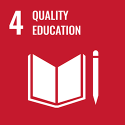
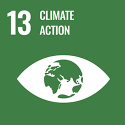
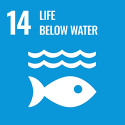
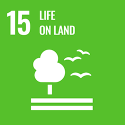
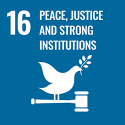
Education for Sustainability Development (EDS) is fundamental in bringing about the kind of behaviour change required to address the breadth of interconnected environmental and social issues we face. It is essential that future generations are equipped with the necessary information to understand the challenges ahead, to empower individuals to reflect on their own actions, and to provide local and global perspectives that will enable us to live and work in a sustainable manner.
The University of Stirling’s is committed to embedding Education for Sustainable Development across all its Faculties and we encourage students to think about their role in supporting sustainability through our Graduate Attributes.
We have a new module, Wicked Problems Sustainable Solutions, that is taught across the University, examining the issues around sustainability and the climate crisis with contributions from each Faculty, equipping students with the knowledge and skills to make informed choices around sustainability. This has been an important step in embedding Education for Sustainability as well as an excellent initiative to deliver the interdisciplinary teaching needed to achieve learning across the different SDG's.
New CPD modules are also being developed in partnership with Academic Development to provide training and best practice for the delivery of ES.
Faculties such as the Stirling Management School have led the way by embedding SDGs throughout its undergraduate and postgraduate programmes, including organisational leadership on sustainability, sustainable business administration, and strategic sustainable business. SMS is an advanced signatory to PRME (Principles for Responsible Management) which is based on the UN’s SDGs and provides the basis for sharing best practice to support similar initiatives across other Faculties. The Faculty of Arts and Humanities have created a sector- leading programme on human rights and diplomacy which is taught in partnership with the United Nations Institute of Training and Research (UNITAR), and sustainability principles are being embedded across programmes within the Faculties of Social Sciences, and Natural Sciences.
Each Faculty is developing its own sustainability agenda in the curriculum and are working to adopt sustainable work practices across all teaching and research laboratories. We are also piloting the adoption of LEAF (Laboratory Efficiency Assessment Framework) as a mechanism to improve sustainable working practices in both teaching and research laboratories.
Despite these advances, we recognise that there is still much to achieve. We are keen to enhance the sustainability literacy of our staff and are currently looking at ways in which this can be implemented. We are also scoping out a sustainability literacy module that could be taken by all students. This will further support student employability and ensure that sustainability principles are implemented beyond the University. Similarly, we are exploring how we can support local communities, school children, and businesses via short on-line courses in sustainability literacy to help them achieve their own carbon reduction targets.
To deliver on these ambitious targets, we have established a pan-University Sustainability Learning and Teaching working group which reports directly to our Education and Student Experience Committee and Corporate Sustainability Steering Group. Through engagement with this working group, staff, Faculty Officers, module reps, and students have a voice in these important developments. Our new Mission Oriented Research Programme will similarly bring together and provide a focus for our research strengths in sustainability and the environment.
Our Careers and Employability Service supports graduates in influencing sustainable development in the workplace which, in turn, helps to drive forward sustainable change in the wider community. We've also made the pledge to the Sustainable Recruitment Alliance to commit to finding more sustainable ways to attract and recruit early talent.
We will actively promote the issue of how we conduct our research in a more sustainable manner, including making use of sustainable travel apps to support staff and students making travel and fieldwork bookings. We are also in the process of redesigning our postgraduate and research induction sessions to ensure that our research is conducted in as sustainable a manner as possible.
In addition to how we conduct our research, a great deal of our research is focused on the environment, environmental change, sustainability, and the UN’s SDGs. Through the development of the City and Regional Deal projects we are working towards delivering national and international sustainability solutions via cutting-edge environmental research projects. Scotland’s International Environment Centre has been set up not only to provide sustainable solutions for the region and Scotland but also internationally by bringing together the latest scientific research, technological advances, policy makers, NGOs and industry.
The Faculty of Natural Sciences is leading on research that seeks to improve the sustainability of environmental management, decision-making and production systems through better resource management and planning, the development of nature-based solutions and more effective use of environmental informatics and sensor technology in decision-making. The Forth-ERA project (an innovative partnership with BT and Scottish Water) uses the latest satellite technology to inform our understanding of flooding and how best to respond to it. We are also working to better understand how to restore forests and woodlands through work in the UK via the WrEN project and across tropical forest systems in Asia, Central America, and Africa.
For over 50 years, the Institute of Aquaculture has played a fundamental role in ensuring food security and meeting the nutritional needs of communities across the world. We continue to work to improve the sustainability of aquaculture systems by refining our understanding of how we model and benefit from marine microclimates, and improved vaccine and nature-based solutions to pest and pathogen management, thereby improving both animal welfare and reducing the environmental impact of production.
Progress in this area will be reviewed and monitored through the committees noted above and via our University Court on an annual basis. Activity in this area will also feature in our Scottish Government’s Public Bodies Climate Change Duty Reporting.